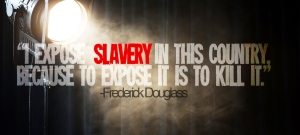This past week I had the pleasure of taking the AML (anti-money laundering) course at ACAMS (an accrediting body for AML professionals). While exploring the site I discovered a Human Trafficking section, I’ve decided to share a select piece here. As I’ve mentioned before the key to breaking networks is data and the financial industry is ripe with data.
“In its 2014 Trafficking in Persons (TIP) Report, the department highlighted efforts by the Financial Crimes Enforcement Network (FinCEN), New York investigators and eight financial institutions to better identify transactional red flags linked to the crime, including unusual cross-border transfers and simultaneous openings and closings of accounts.
The financial institutions—Bank of America, American Express, Barclays, Citigroup, JPMorgan Chase & Co., TD Bank, Wells Fargo and Western Union— spoke with representatives of the Manhattan District Attorney’s Office in an April 2013 roundtable on identifying human traffickers.
“I don’t see bankers as people with money, but as people with data,” said Martina Vandenberg, founder and president of The Human Trafficking Pro Bono Legal Center, in a statement on the roundtable. “We have never before bridged this idea of financial crime and human trafficking. Bringing these two worlds together will increase the number of trafficking prosecutions in the United States and around the world.”
That trend should only strengthen, said Louise Shelley, director of the Terrorism, Transnational Crime and Corruption Center at George Mason University and author of Dirty Entanglements: Corruption, Crime and Terrorism.
“Many more banks should be mining their data and working with law enforcement to find patterns of human trafficking,” said Shelley. “There would be many more cases [if they did].”
…“We started to approach the financial institutions and educate them as to what we’re seeing,” said Stephenie Lord Eisert, chief of the Illicit Finance and Proceeds of Crime Unit at HSI. The effort has contributed to approximately 100 arrests and the seizure of some $14 million, she said.
Some banks have also adopted new compliance measures that can thwart human traffickers. In March, JPMorgan Chase instituted a new policy that prohibits cash deposits unless the depositor’s signature is on the account.”
Excerpt from Growing Role of Banks in Identifying Human Traffickers Seen as Crucial by U.S. Officials
By Kira Zalan, readable in full here
Please check out the main ACAMS page on the issue here. If you are interested in learning more about ACAMS or money laundering, there are free webinars available to non-members on their page.
It’s great to read also that major banks are taking steps further than those required by law to try and detect these suspicious networks. The financial industry is really in a great place to do work against organized crime because at some point or another the money feeds into the financial system. Identifying it allows for seizure and arrests of attached parties. It’s also great to discover an organization like ACAMS is taking the time to make sure trafficking awareness is part of their community. Members of ACAMS after all are the AML compliance officers (not all compliance officers are members of ACAMS but it is common) that do the reviews of suspect transactions and accounts. I couldn’t find an exact number member wise on their website, by Wikipedia is saying it was over ten thousand worldwide in 2009. That’s ten thousand financial professionals seeing this issue raised in newsletters, on the webpage, and the community forums.
“Enter the light of your own will, or be dragged to it.”
This is a quote from the game Skyrim. I think it’s actually referring to the hunt of vampires but that’s pretty off topic and I love the quote. Human trafficking is an industry that thrives in the darkness but we can bring light to the issue. Expose it and end it.








